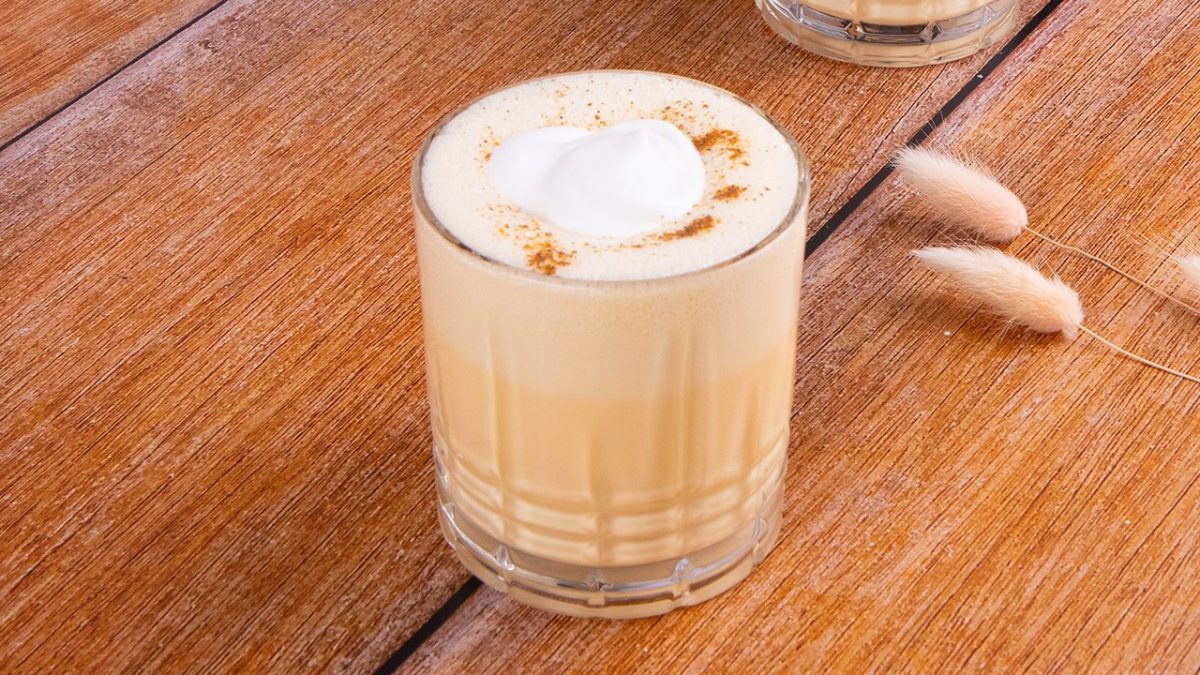
Homemade Eggnog, also known as egg nog or lait de poule (literally "hen's milk"), is an alcoholic drink typical of Anglo-Saxon countries made from eggs, sugar, milk, cream, nutmeg and liqueur. Traditionally enjoyed here in the United States and Great Britain starting from Thanksgiving Day and throughout the Christmas period, the recipe, although with some differences, is very similar to Italian zabaglione.
To prepare it, you just need to beat the eggs with the granulated sugar using an electric whisk, then add the whole milk and the fresh cream, and then continue to work with the whisk until you obtain a light and frothy mixture. At this point, incorporate the brandy and rum, transfer the dense and creamy liquid into individual glasses, and finally finish everything off with a sprinkling of nutmeg and a teaspoon of whipped cream: the result will be a spicy and invigorating drink, ideal for sipping at room temperature, as in the version proposed here, or bring to the table hot and steaming during the cold winter days.
What is Eggnog? History and Origins
Eggnog, a rich and creamy holiday beverage, traces its origins to medieval Britain, where it evolved from a drink called "posset." Posset was a hot ale or wine-based mixture with milk, eggs, and spices, often consumed as a remedy or a celebratory drink. By the 17th century, the wealthy in Britain adapted it into a cold, milk-and-egg-based drink enriched with sherry or brandy, symbolizing prosperity due to the expense of ingredients like milk, eggs, and spices. As the drink spread to the American colonies, where milk and eggs were more readily available, spirits like rum and later whiskey became substitutes for sherry, giving rise to regional variations. In Latin America, similar drinks emerged, such as Mexico’s "rompope" and Puerto Rico’s "coquito," featuring tropical flavors like coconut. Today, eggnog is beloved worldwide during festive seasons, celebrated for its warmth, decadence, and versatility across cultures.
Pro Tips to Get the Best Homemade Eggnog
- Fresh eggs, high-fat cream, and whole milk will yield a richer, creamier eggnog.
- Beat the eggs and sugar thoroughly until the mixture is light and frothy. This step is crucial for the smooth texture and balanced sweetness.
- Using cold milk and cream ensures the drink stays cool and fresh without needing ice, which could dilute the flavor.
- While nutmeg is traditional, you can also try cinnamon or a pinch of clove for added warmth and complexity.
- Use high-quality rum and brandy for a smoother taste, and adjust the quantity to your preference. Non-alcoholic versions can be made by omitting these ingredients.
- For deeper flavors, allow the mixture to rest in the refrigerator for an hour before serving.
- Freshly grated nutmeg adds a delightful aroma and visual appeal. You can also add a cinnamon stick for decoration.
What Alcohol Does Traditionally Go in Eggnog?
Eggnog traditionally uses rich, flavorful spirits like rum, brandy, or bourbon. Rum, especially dark or spiced varieties, adds a warm, sweet depth. Brandy offers a smooth, fruity elegance, while bourbon gives a smoky, robust flavor. Often, a mix of rum and brandy is used for a balanced, complex profile.
Can I Make an Alcohol-Free Version?
Yes, you can easily make an alcohol-free version of eggnog! Simply omit the rum, brandy, or other spirits from the recipe. To enhance the flavor, consider adding a splash of vanilla extract or a pinch of nutmeg and cinnamon for a warm, festive touch. It’s just as creamy and delicious without the alcohol!
What Does Eggnog Taste Like?
Eggnog tastes rich, creamy, and sweet with a hint of warmth from spices like nutmeg. It has a custard-like flavor, reminiscent of melted ice cream, with a smooth and indulgent texture. When made with alcohol, it carries subtle notes of warmth and complexity from the spirits.
Are the Eggs in Eggnog Cooked or Raw? Is it Safe to Drink?
In traditional eggnog recipes like ours, the eggs are raw, which gives the drink its creamy texture. While consuming raw eggs carries a small risk of salmonella, using pasteurized eggs makes it safer. Alternatively, you can gently heat the mixture on the stove until it thickens slightly (without scrambling the eggs) for a safer cooked version.
Do I Serve Eggnog Hot or Cold?
We tried the cold version, but if you prefer, you can prepare a warm and comforting drink to accompany shortbread and other dry pastries. To do this, simply beat the eggs and sugar in a bowl, then gradually incorporate a mixture of milk, cream and nutmeg, previously heated on the stove until it boils, and then let it cook over a medium flame, stirring often with a whisk, until it thickens. At this point, add the brandy and rum to the aromatic liquid, filter the mixture with a fine mesh strainer and finally finish the cocktail with a sprinkling of cinnamon or nutmeg.
Can I Make Eggnog Ahead of Time?
Yes, eggnog can be made ahead of time and often tastes better after resting, as the flavors meld together. For alcohol-free eggnog, refrigerate it for up to 2 days. If using alcohol, it acts as a preservative, allowing the eggnog to be stored in the fridge for up to a week or more. Always keep it chilled and well-covered.
Does Eggnog Freeze Well?
Yes, you can freeze eggnog to extend its shelf life! Store it in an airtight container, leaving some space for expansion. It can be frozen for up to 6 months. When ready to use, thaw it in the refrigerator and whisk well to restore its creamy texture, as it may separate slightly during freezing.
Eggnog Inspired Recipes to Try for Christmas!
Overnight Eggnog French Toast Casserole
How to Store Homemade Eggnog
To store eggnog leftovers, transfer them to an airtight container and refrigerate promptly. It will stay fresh for 2-3 days if alcohol-free, or up to a week if alcohol is included, as it acts as a preservative. Stir well before serving, as the ingredients may settle over time.
Ingredients
How to Make Homemade Eggnog
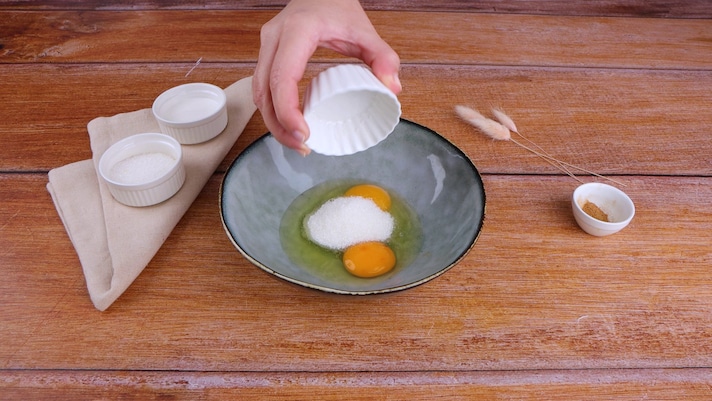
Collect the eggs and granulated sugar in a bowl.
Collect the eggs and granulated sugar in a bowl.
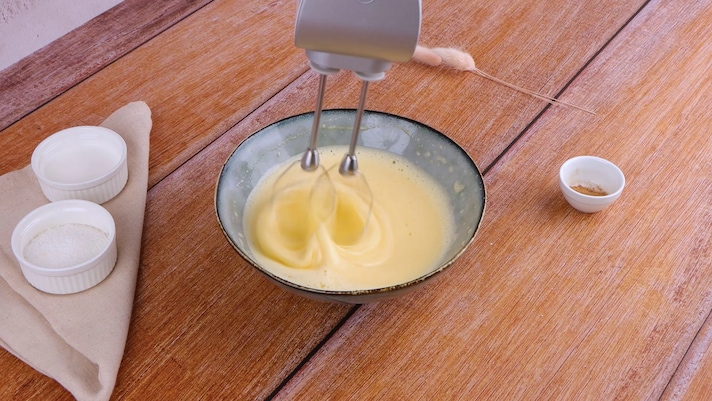
Beat the ingredients with an electric whisk until you obtain a light and frothy mixture.
Beat the ingredients with an electric whisk until you obtain a light and frothy mixture.
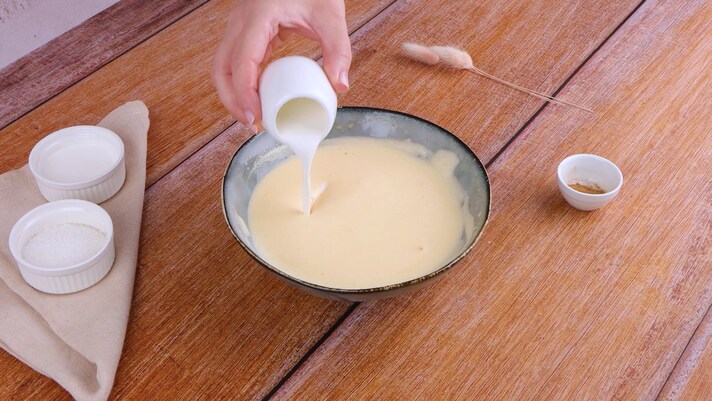
Pour in the cream.
Pour in the cream.
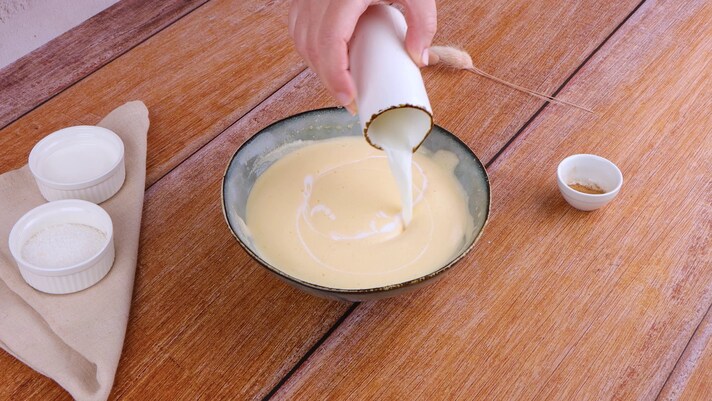
Pour in the whole milk as well.
Pour in the whole milk as well.
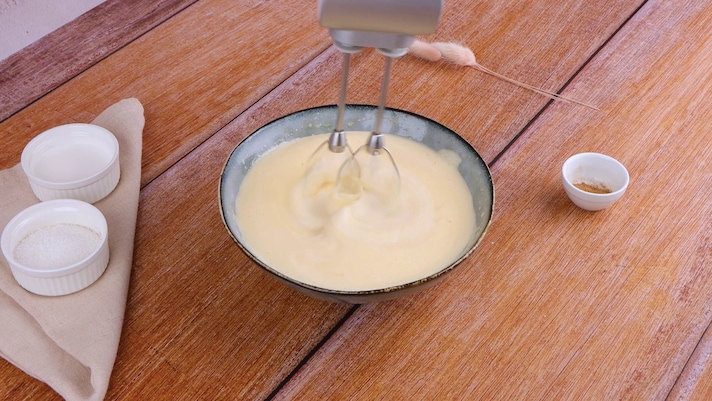
Incorporate the liquids with the electric whisks.
Incorporate the liquids with the electric whisks.
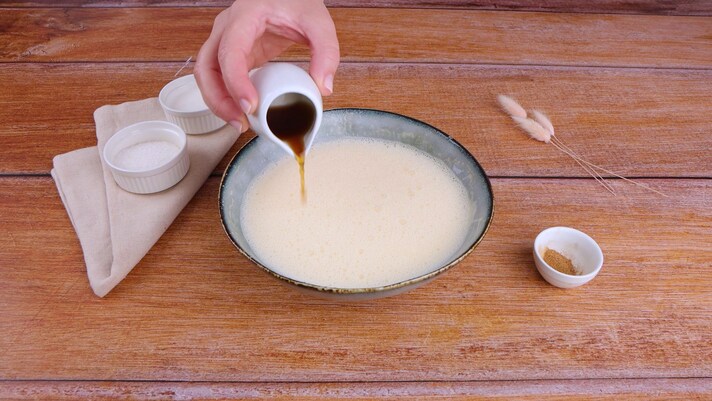
Then, pour in the rum.
Then, pour in the rum.
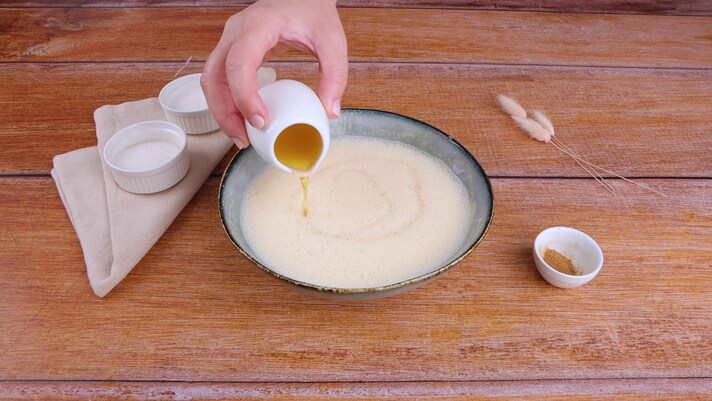
Finish with brandy and keep mixing with the whisks to incorporate the two spirits.
Finish with brandy and keep mixing with the whisks to incorporate the two spirits.
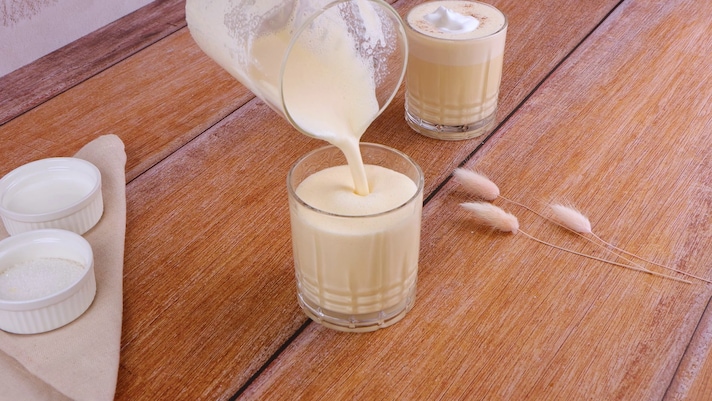
At this point, distribute the Eggnog into individual glasses (previously chilled).
At this point, distribute the Eggnog into individual glasses (previously chilled).
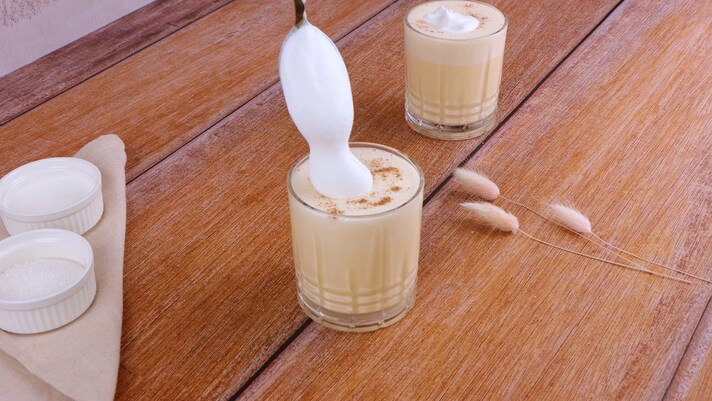
Flavor with a pinch of nutmeg and complete with a teaspoon of whipped cream.
Flavor with a pinch of nutmeg and complete with a teaspoon of whipped cream.
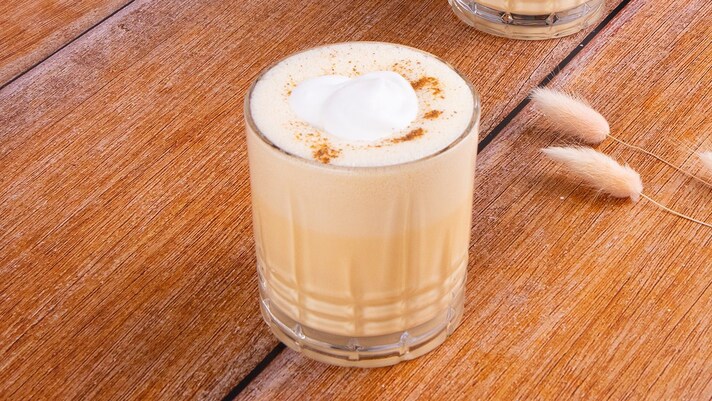
Enjoy!
Enjoy!

;Resize,width=767;)
